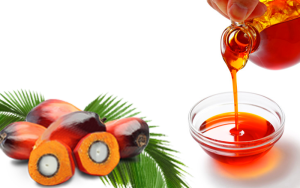

Crude palm oil is a versatile and sustainable ingredient produced by our farm. It is made from the fruit of the oil palm tree and is 100% pure and natural without any chemical treatment or preservatives. It has benefits such as being cholesterol-free, containing high levels of vitamin A and E, and having a high smoke point and long shelf life. It is also sourced from sustainable and responsible farming practices with strict traceability to ensure it is free from deforestation and exploitation. It can be used in food and non-food applications such as cooking, soap, cosmetics and biofuels, it is also a cost- effective ingredient for food manufacturers and can be used as a direct substitute for other oils.
FFA: 5.0% Max
Moisture & Impurities: 0.25% Max
Dobi Value: 2.3 Min
Crude Palm Oil (CPO) is an essential agricultural commodity that is widely produced and exported by Indonesia. The country is the world’s largest producer and exporter of palm oil, and the industry contributes significantly to the national economy. In this essay, we will discuss the history of CPO in Indonesia, the benefits and challenges of its production, and the future outlook of the industry.
Palm oil was introduced to Indonesia during the Dutch colonial period in the early 20th century. At first, it was mainly grown in smallholder plantations in Sumatra and Java. However, the industry expanded rapidly after independence, driven by government policies that aimed to promote agricultural development and reduce dependence on imported vegetable oils.
Today, CPO is produced in all parts of the country, from Aceh in the west to Papua in the east. The industry is dominated by large-scale plantations owned by corporations such as Wilmar International, Sime Darby, and Golden Agri-Resources. These plantations cover millions of hectares of land and employ hundreds of thousands of workers.
The production of CPO has brought many benefits to Indonesia. It has created jobs, boosted rural incomes, and contributed to government revenues through taxes and export earnings. According to the Indonesian Palm Oil Association (GAPKI), the industry generated USD 22.97 billion in export revenues in 2020, making it the country’s largest non-oil and gas export.
However, the industry also faces many challenges. One of the main criticisms of CPO production is its environmental impact. The conversion of natural forests and peatlands into plantations has led to deforestation, habitat loss, and greenhouse gas emissions. The industry has also been associated with land conflicts and human rights abuses, particularly against indigenous peoples and smallholder farmers.
In recent years, the Indonesian government and the industry have taken steps to address these challenges. In 2011, the government introduced a moratorium on new licenses for logging and plantation development in primary forests and peatlands. In 2019, the government launched the Indonesian Sustainable Palm Oil (ISPO) certification scheme to promote sustainable and responsible practices in the industry. Many companies have also adopted sustainability policies and committed to zero-deforestation and zero-exploitation practices.
Looking ahead, the future of the CPO industry in Indonesia is both promising and uncertain. On the one hand, global demand for palm oil is expected to continue growing, driven by population growth and rising incomes in developing countries. Indonesia has a comparative advantage in palm oil production, with its abundant land, favorable climate, and competitive labor costs. Moreover, the industry has the potential to expand into new markets, such as biofuels and oleochemicals.
On the other hand, the industry faces several risks and challenges. The increasing scrutiny of palm oil’s environmental and social impacts by consumers, NGOs, and governments could lead to restrictions on imports and lower demand for unsustainable palm oil. The rise of alternative vegetable oils, such as soybean, sunflower, and rapeseed, could also erode palm oil’s market share. Moreover, the industry needs to address the issue of labor rights and improve working conditions for plantation workers.
In conclusion, Crude Palm Oil is a vital commodity for Indonesia’s economy and has brought many benefits to the country. However, the industry also faces significant challenges related to environmental sustainability, social responsibility, and market competition. To ensure the long-term viability and competitiveness of the industry, the government and the industry need to work together to promote sustainable and responsible practices, address social and environmental issues, and diversify the market for palm oil products.